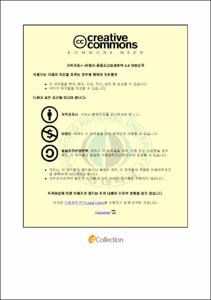로스터리 커피전문점 선택속성이 고객만족과 충성도에 미치는 영향관계
- Abstract
- To gain a competitive advantage amid severe competition, Korean roastery coffee houses need marketing tailored to the preferences of main users, achieved by identifying consumer selection attributes towards coffee shops, customer satisfaction, and customer loyalty.
This is an investigative study into the relations among customer selection attributes towards rostery coffee houses in Busan, customer satisfaction and customer loyalty. The purpose of the study is to provide basic marketing material for coffee shop managers in an increasingly competitive market by finding out the customer preferred products so they can seek ways to improve services.
With the population of consumers who have used roastery coffee houses in Busan, this study analyzed the results of a survey of 221 people. Data was analyzed using SPSS 18.0 by which an analysis of the reliability and validity of respondent demographic features and selective attributes, and an exploratory factor analysis were conducted. Multiple regression analysis was used to analyze the relations of selection attributes, customer satisfaction, and loyalty.
After reviewing literature and existing studies on attributes in the selection of coffee shops, customer satisfaction and loyalty, the study examined the concept and status of coffee shops, dividing attributes in the selection of roastery coffee shops into 5 factors —coffee, employee service, accessibility, brand, and promotion. Customer satisfaction with roastery coffee shops consists of 4 items —satisfaction with coffee and service, satisfaction with menu and coffee prices. a pleasant atmosphere and time-in-shop, and revisit intention. Customer loyalty towards roastery coffee shops consists of 4 items —the best coffee shop, regular visits, preferred consideration, and preferred choice.
The results of the study are as follows:
First, to identify the demographic and behavioral characteristics of the sample group, the questionnaire consists of items — gender, age, the location of coffee shops used, visit frequency per month, the way of using coffee shops —here or to go—, and preferred products. The results show 20-39 year-olds are the largest customer group with 160 respondents. 140 respondents said they use coffee shops around workplaces, schools, and homes, which compares with the current trend of the largest coffee shop brands —Caffebene, Angel-in-us, etc.— opening their branches in residential areas. Americano is the favorite type of coffee (favored by 118 respondents), with Korean coffee consumers tending to enjoy the pure flavor of coffee.
Secondly, 'employee service' is the most significant factor influencing customer satisfaction, followed by 'coffee', telling of the characteristics of roastery coffee shops where employee skills are vital. Accordingly, roastery coffee shops need to offer employees a systemic programme of learning and training (e.g. latte art, hand drip, and etc.) to enhance their skills. The influence of 'coffee' on customer satisfaction means an increasing number of consumers preferring quality coffee with more knowledge of coffee as the coffee market reaches maturity. Therefore, the strategic use of coffee and employment service factors would facilitate better coffee shops.
Thirdly, 'brand' is the most significant factor influencing customer loyalty, followed by 'coffee'. This suggests that roastery coffee shop users prefer their own specific brands, driven by the flavour of the coffee.
Finally, customer satisfaction with roastery coffee shops, formed over the long term of their interaction with stores, can lead to a continuation of customer visitation. Therefore, coffee shops need to enhance customer satisfaction through differentiated coffee menus, and a systemic education and management of employees. It would lead to revisit, preferred choice, and regular visits among customers and to positive brand awareness, and to customer loyalty.
The existing studies on coffee, focusing on general coffee shops, lack investigation into the relations between consumer selection attributes towards roastery coffee shops, customer satisfaction, and loyalty. In an already saturated Korean coffee market, this study identifies the characteristics of visitors to roastery coffee shops with growth potential, and the relations between their selection attributes and customer satisfaction and loyalty. It is expected to provide roastery coffee shop managers with a framework for understanding the market and promoting marketing activities.
The study has its own limitations: its focus on roastery coffee shops, not expanding into large-scale franchise coffee shops; and its limited investigation due to the lack of preceding studies on roastery coffee shops. Future studies need to employee a variety of factors for a more comparative analysis at the standpoint of customers and employees.
Hopefully, this study will contribute to improving the marketing and service of coffee houses.
- Issued Date
- 2014
- Awarded Date
- 2014. 2
- Type
- Dissertation
- Publisher
- 부경대학교
- Affiliation
- 경영대학원
- Department
- 경영대학원 관광경영학과
- Advisor
- 양위주
- Table Of Contents
- Ⅰ. 서론 1
1. 연구배경과 목적 1
2. 연구방법과 구성 3
Ⅱ. 이론적 배경 4
1. 커피전문점 4
2. 커피전문점 선택속성 8
3. 커피전문점 고객만족 12
4. 커피전문점 충성도 16
Ⅲ. 연구방법 21
1. 연구 모형과 가설 설정 21
가. 연구 모형 21
나. 가설 설정 22
2. 조사 설계 23
가. 조사 개요 23
나. 변수의 조작적 정의 24
다. 설문지의 구성과 내용 25
라. 분석방법 26
Ⅳ. 가설 검증과 결과의 해석 27
1. 표본의 인구통계학적 특성 27
2. 신뢰성과 타당성 검증 30
가. 커피전문점 선택속성 신뢰성과 타당성 분석 31
나. 커피전문점 고객만족 충성도 신뢰성과 타당성 분석 32
3. 가설 검증과 결과의 해석 34
가. 가설 1의 검증과 결과의 해석 34
나. 가설 2의 검증과 결과의 해석 36
Ⅴ. 결론 38
1. 연구결과와 시사점 38
가. 연구요약 38
나. 시사점 41
2. 한계점과 향후 연구과제 42
참고문헌 44
설문지 53
- Degree
- Master
- Files in This Item:
-
-
Download
 로스터리 커피전문점 선택속성이 고객만족과 충성도에 미치는 영향관계.pdf
기타 데이터 / 808.46 kB / Adobe PDF
로스터리 커피전문점 선택속성이 고객만족과 충성도에 미치는 영향관계.pdf
기타 데이터 / 808.46 kB / Adobe PDF
-
Items in Repository are protected by copyright, with all rights reserved, unless otherwise indicated.